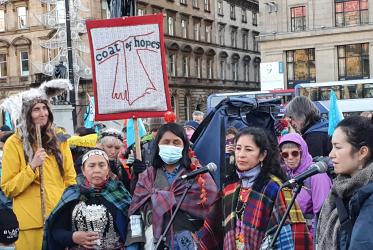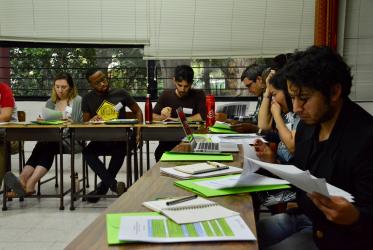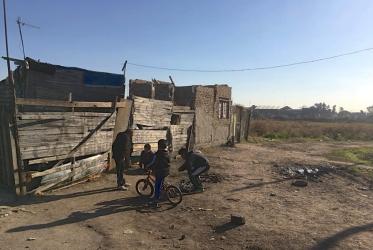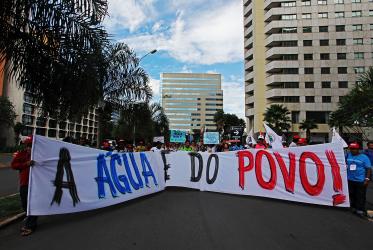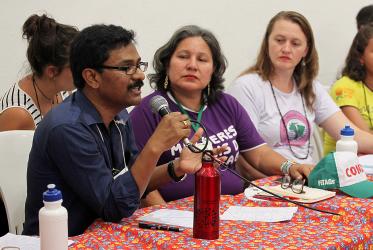Displaying 1 - 20 of 52
In Canada, local churches offer a new view on climate accountability
04 December 2020
Interfaith Rainforest Initiative expands
12 February 2019
WCC Eco-School encourages youth to become eco-ambassadors
08 November 2018
WCC reaffirms water as God’s gift and a human right
27 March 2018
Voices from Colombia: “What if we have no land to till?”
15 February 2018



